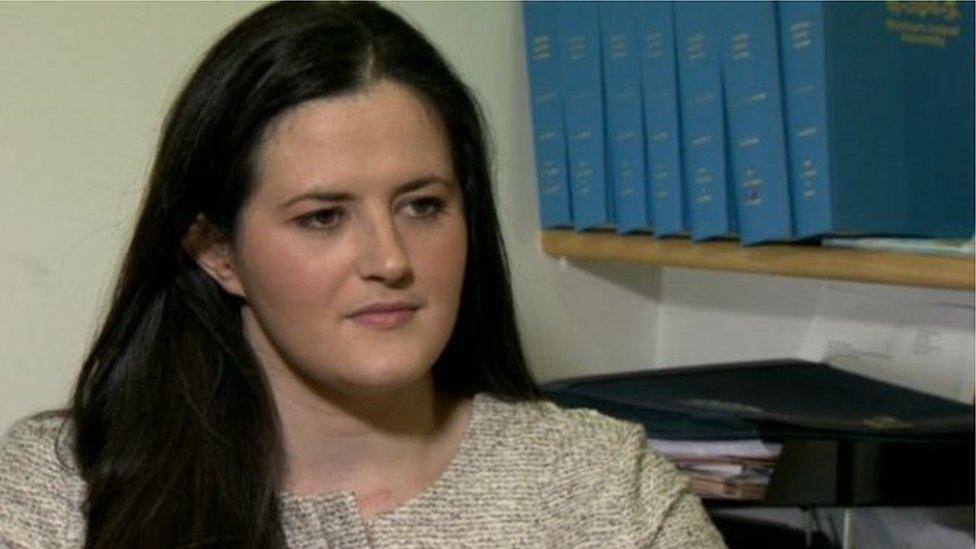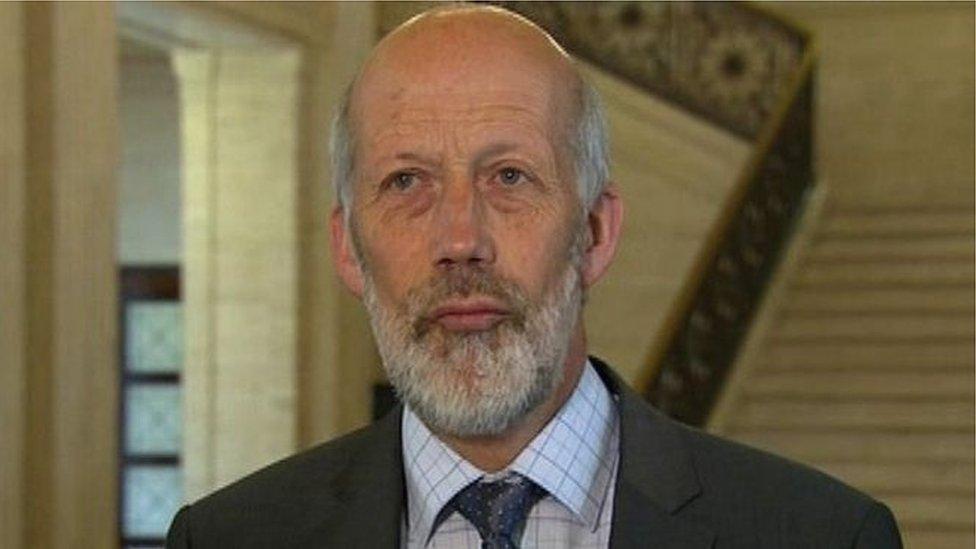Abortion: NI's 'largest petition' consisted of several earlier petitions
- Published

Claire Sugden: 'None of the petitions was concerning fatal foetal abnormality'
The justice minister has said that a petition by anti-abortion groups claiming 300,000 signatures actually consisted of several petitions collected over 12 years.
Claire Sugden said she received the petition via DUP MLA Jim Wells.
He said it was "the largest petition ever received by the assembly" and signed by Northern Ireland residents.
Ms Sugden revealed that the petition contained signatures from nine campaigns from 2001/2 to 2014.
Addresses from outside Northern Ireland
The minister made the comments in reply to a written question from Paula Bradshaw of Alliance.
She wrote: "There was no petition relating to termination of pregnancy for fatal foetal abnormality and no petition dated after September 2014. There were also addresses identified in the material provided which were not in Northern Ireland."
Mr Wells presented the Precious Life petition to the assembly a week after the Green Party's Claire Bailey presented one containing 45,000 signatures calling for a change to Northern Ireland's abortion laws.
Last month, Stormont sources told the BBC that a working group on fatal foetal abnormality had recommended legislative changes.

David Ford's abortion bill will return to the assembly in the New Year
Alliance MLA and former justice minister, David Ford recently introduced his private member's bill on abortion to the assembly.
The bill seeks to legalise abortion in cases of fatal foetal abnormalities.
The next stage will take place in the new year.
Unlike other parts of the UK, the 1967 Abortion Act does not extend to Northern Ireland.
Currently, a termination is only permitted in Northern Ireland if a woman's life is at risk or if there is a risk of permanent and serious damage to her mental or physical health.
In February, MLAs voted against legalising abortion in cases of fatal foetal abnormality.
Politicians have been lobbied to reform the law since 2013, when Northern Ireland woman Sarah Ewart spoke out about having to travel to Great Britain for an abortion after she was told she was carrying a baby that had no chance of survival